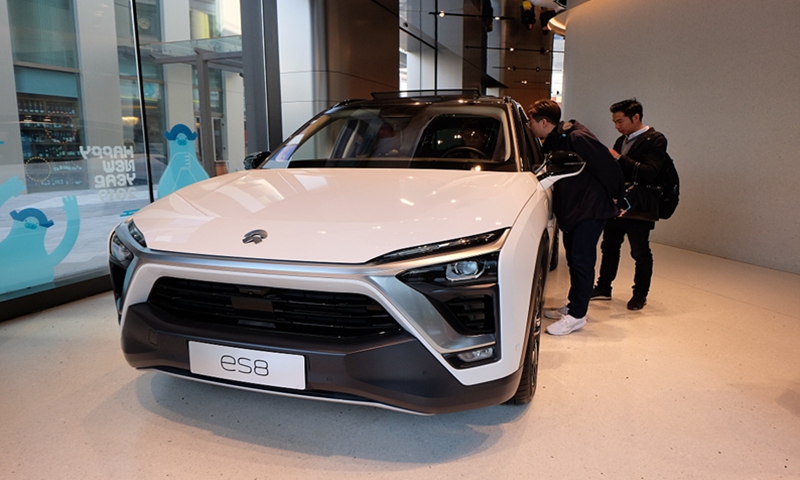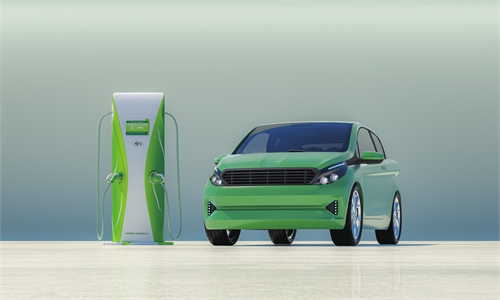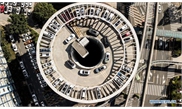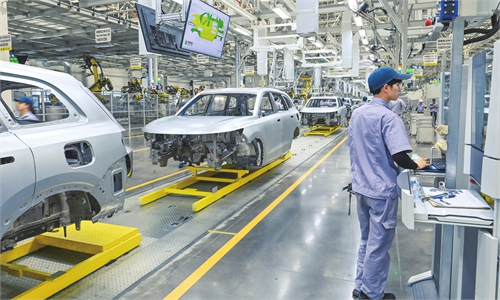NIO launches new models in four European countries; Chinese NEV makers eye European market

A NIO ES8 in a store Photo: VCG
Chinese new-energy vehicle (NEV) maker NIO on Saturday launched three models in four European countries, Germany, Denmark, Sweden and the Netherlands, marking a further step by the company in expanding its footprint in Europe after it entered the Norwegian market a year ago.
At the launching event in Berlin, NIO chairman Li Bin said that the company will be present in 25 countries and regions by 2025. At the end of September, NIO had over 250,000 users in China and Norway. The company has installed 1,158 power swap stations, over 11,000 NIO chargers and connected to almost one million third-party chargers, he said.
One day later, Li said that products under NIO's ALPS project will be launched in European markets as well, according to media reports, without mentioning an exact launching date.
Apart from NIO, a series of Chinese NEV makers have accelerated their exploration of overseas markets in recent years, boosted by the overall leading position of Chinese players in the sector, experts said.
China's auto exports increased 52.8 percent year-on-year in the first eight months of 2022 to 1.82 million units, among which NEVs export surged 97.4 percent to 340,000, according to data from the China Association of Automobile Manufacturers.
In addition to surging exports, the auto makers have been expanding their layout in overseas markets as well. Traditional auto producers are leading the trends, such as SAIC Motor, GWM, BYD, and Chery.
SAIC Motor, as China's largest auto maker, delivered a new EV model - MG4 ELECTRIC - to the European market in July. The sales volume of the MG vehicles in Europe has exceeded 45,000, and MG ranks among the top 10 in the pure electric vehicle markets in Sweden, Norway and other countries, read a statement the company released on its website.
SAIC Motor aims to sell more than 800,000 vehicles overseas this year, aiming to further expand its leading edge in the international market, the company said.
BYD also rolled out three models in the European market in September. According to media reports, the largest car rental company in Germany, Sixt, announced plans to purchase 100,000 EVs from BYD within six years.
Besides auto makers, other Chinese companies across the NEV industrial chain have started their push to become more international. For instance, CATL, a global leader in lithium-ion battery development and manufacturing, recently initiated a project to build a factory in Hungary, with an investment of 7.34 billion euro ($7.15 billion). It also announced in April to set up its first European factory in German.
CATL reported a total of 27.87-billion-yuan ($3.92 billion) revenue sourced from overseas markets in 2021, accounting for 21.38 percent of its total operational revenue, domestic news site stcn.com reported.
Chinese NEV makers have developed advantages across the global market, and have started a comprehensive push into overseas markets, Cui Dongshu, secretary general of the China Passenger Car Association (CPCA), told the Global Times.
In the meantime, the sector's development in Europe and North America is still at an early stage. Chinese NEV producers are mainly competing with Japanese and Korean firms for global market share, Cui noted.
Global Times



